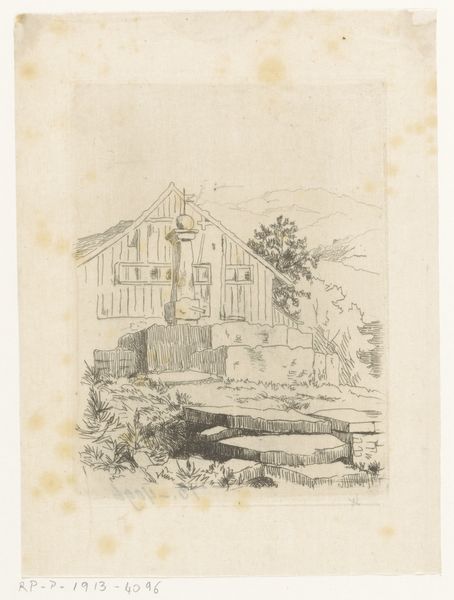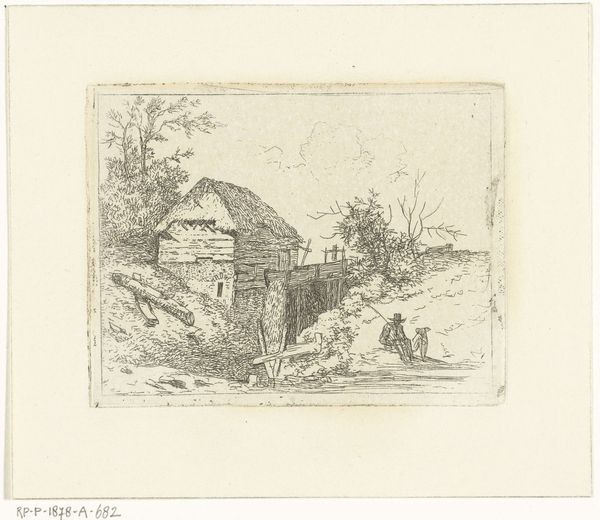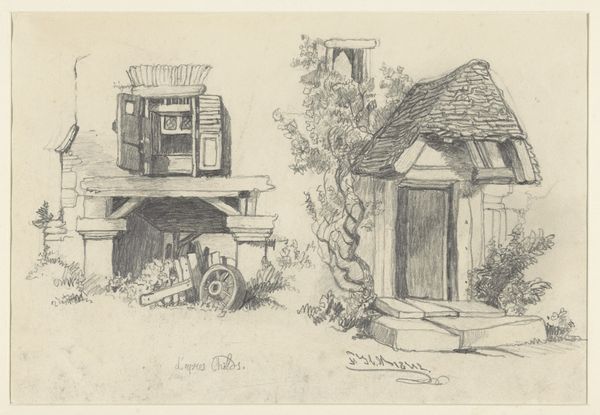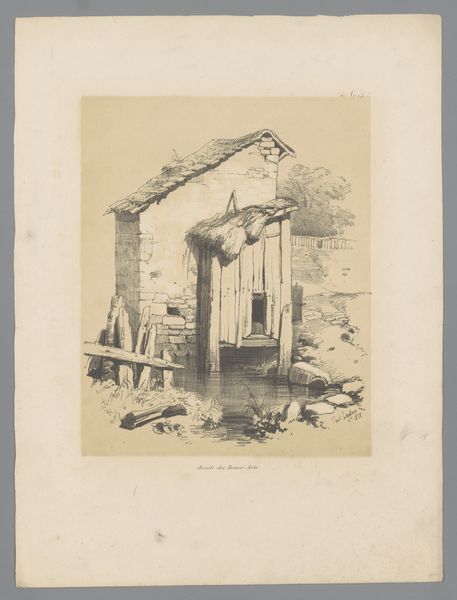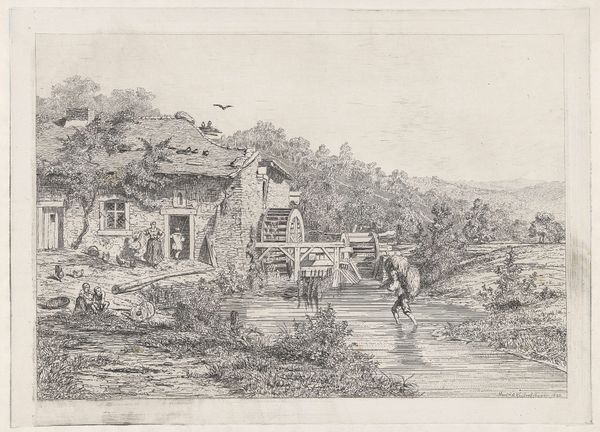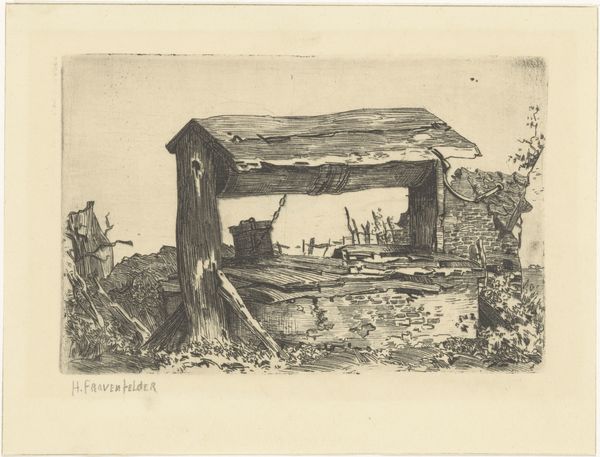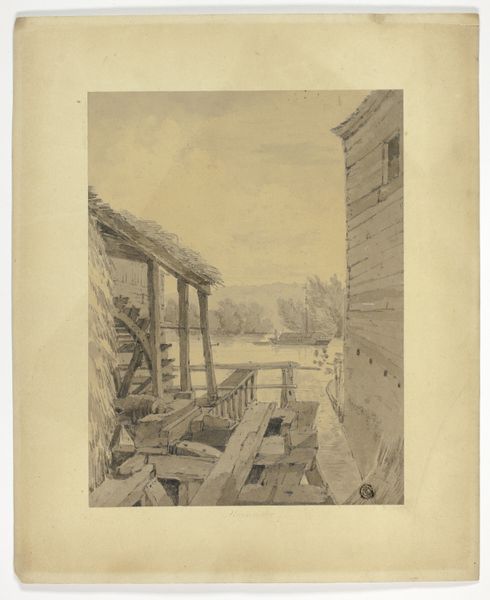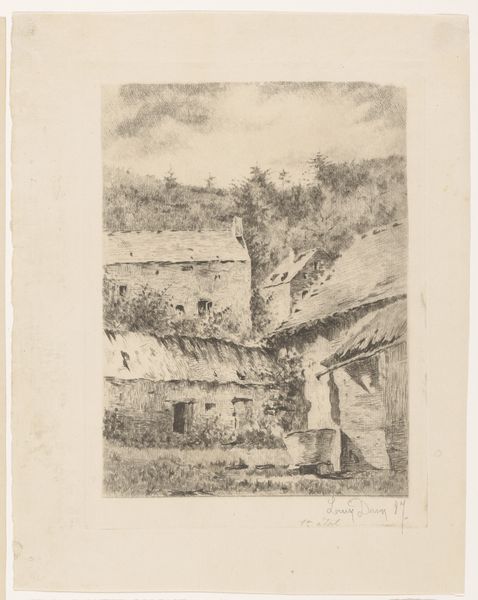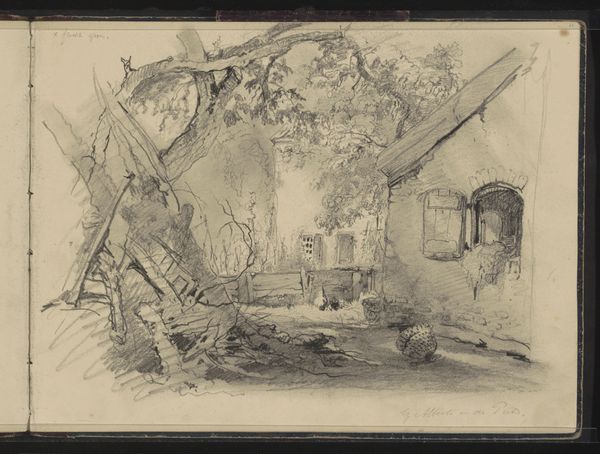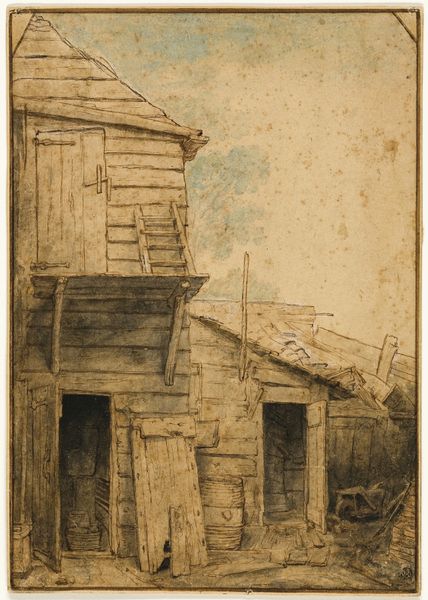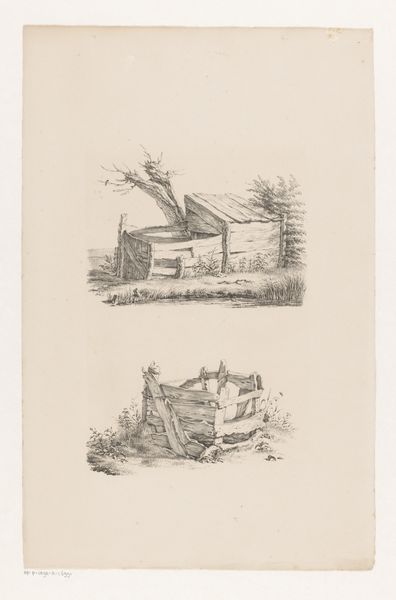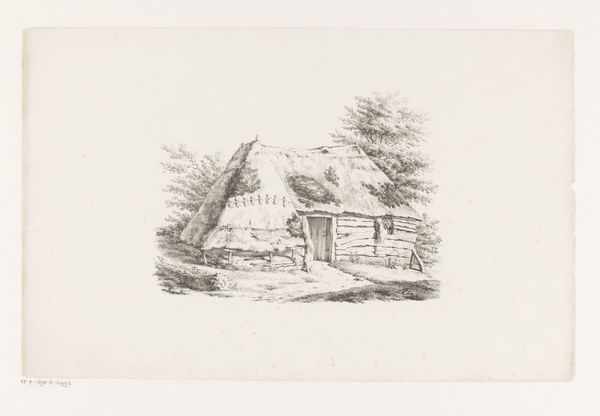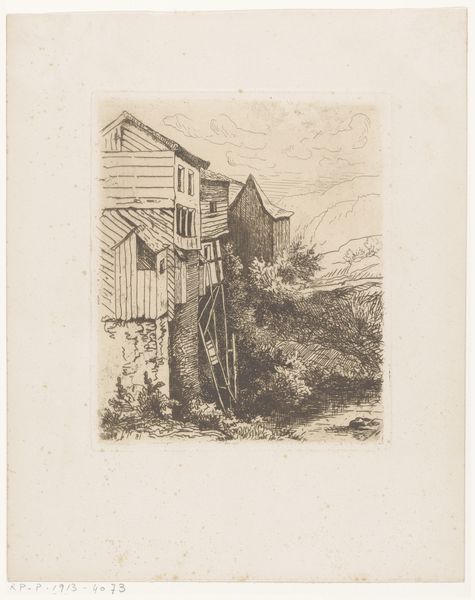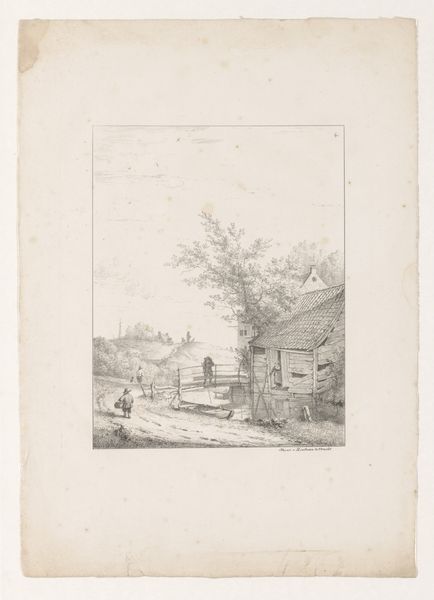
drawing, pencil
#
drawing
#
landscape
#
romanticism
#
pencil
#
realism
Dimensions: height 221 mm, width 190 mm
Copyright: Rijks Museum: Open Domain
Frederik Hendrik Weissenbruch created this work titled ‘Schuurtje’ using pencil. Notice the prominent watermill, a symbol that has ancient roots in agrarian societies. Historically, the mill represents not just technological advancement, but also sustenance, community, and the taming of nature. The motif of the mill appears as early as the Roman period, often associated with Ceres, the goddess of agriculture. Over time, it takes on new cultural and symbolic weight, as seen in Dutch Golden Age paintings where windmills punctuate the landscape, symbolizing prosperity and the Dutch mastery over water. Here, the mill's decay brings forth a different kind of symbolism. It evokes a sense of nostalgia, a collective memory of simpler times clashing with the inevitable passage of time. The mill, once vibrant and alive, now stands as a ruin. It engages the viewer on a deep, subconscious level, prompting reflection on the transient nature of existence. In a non-linear progression, the mill recurs throughout history, reflecting our complex relationship with progress and the natural world, continually resurfacing, evolving, and accruing new meanings in different historical contexts.
Comments
No comments
Be the first to comment and join the conversation on the ultimate creative platform.
